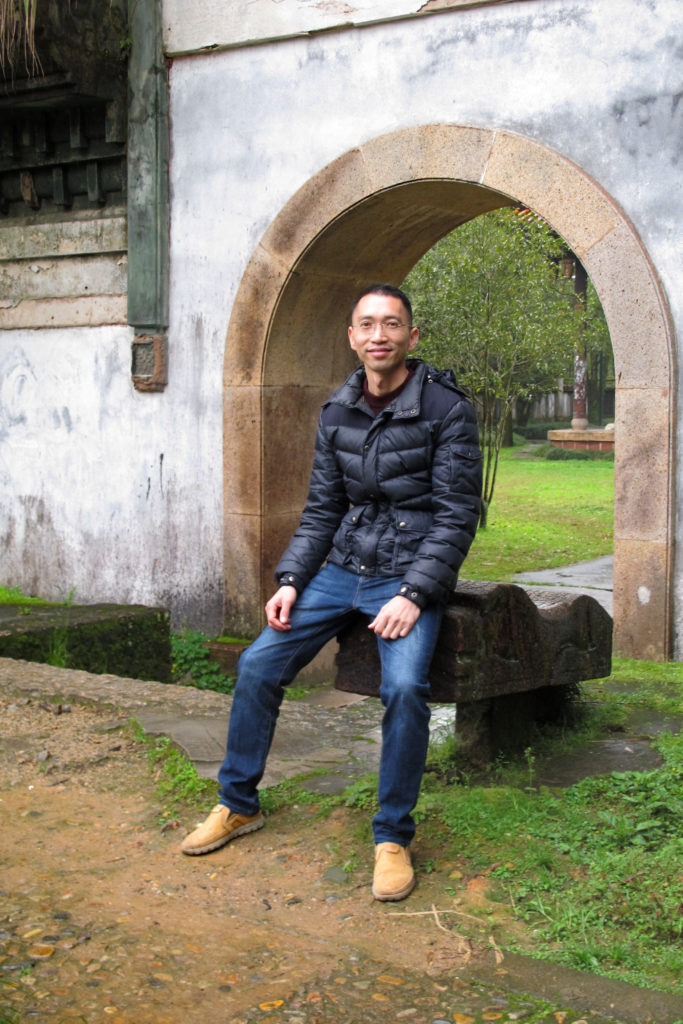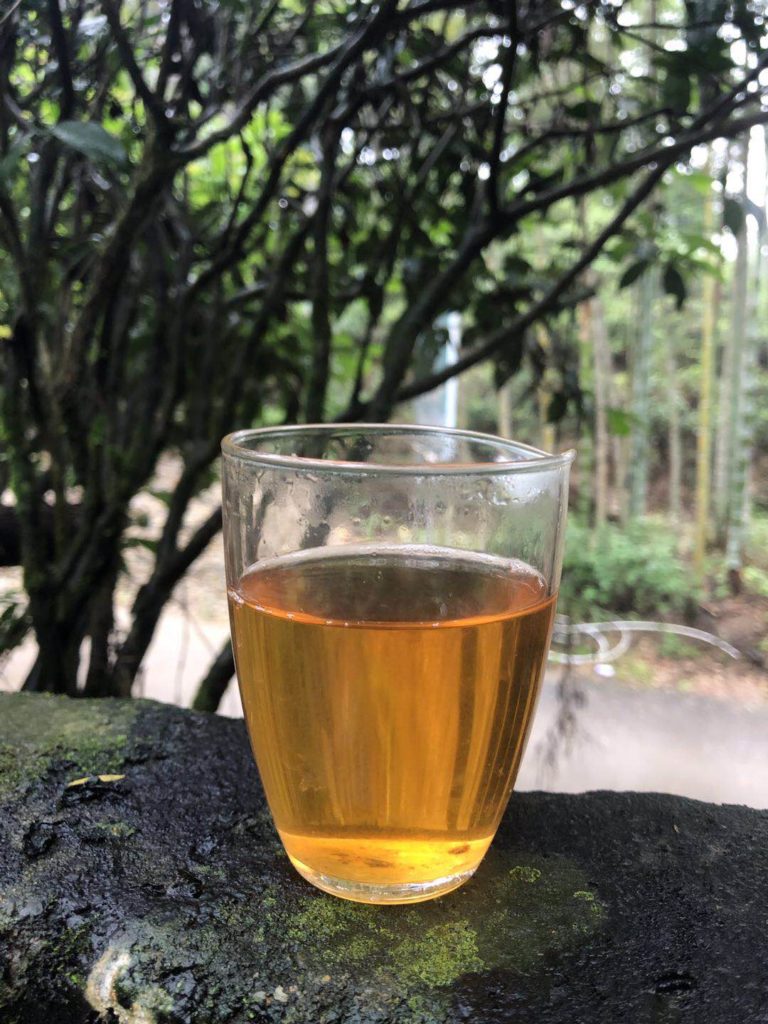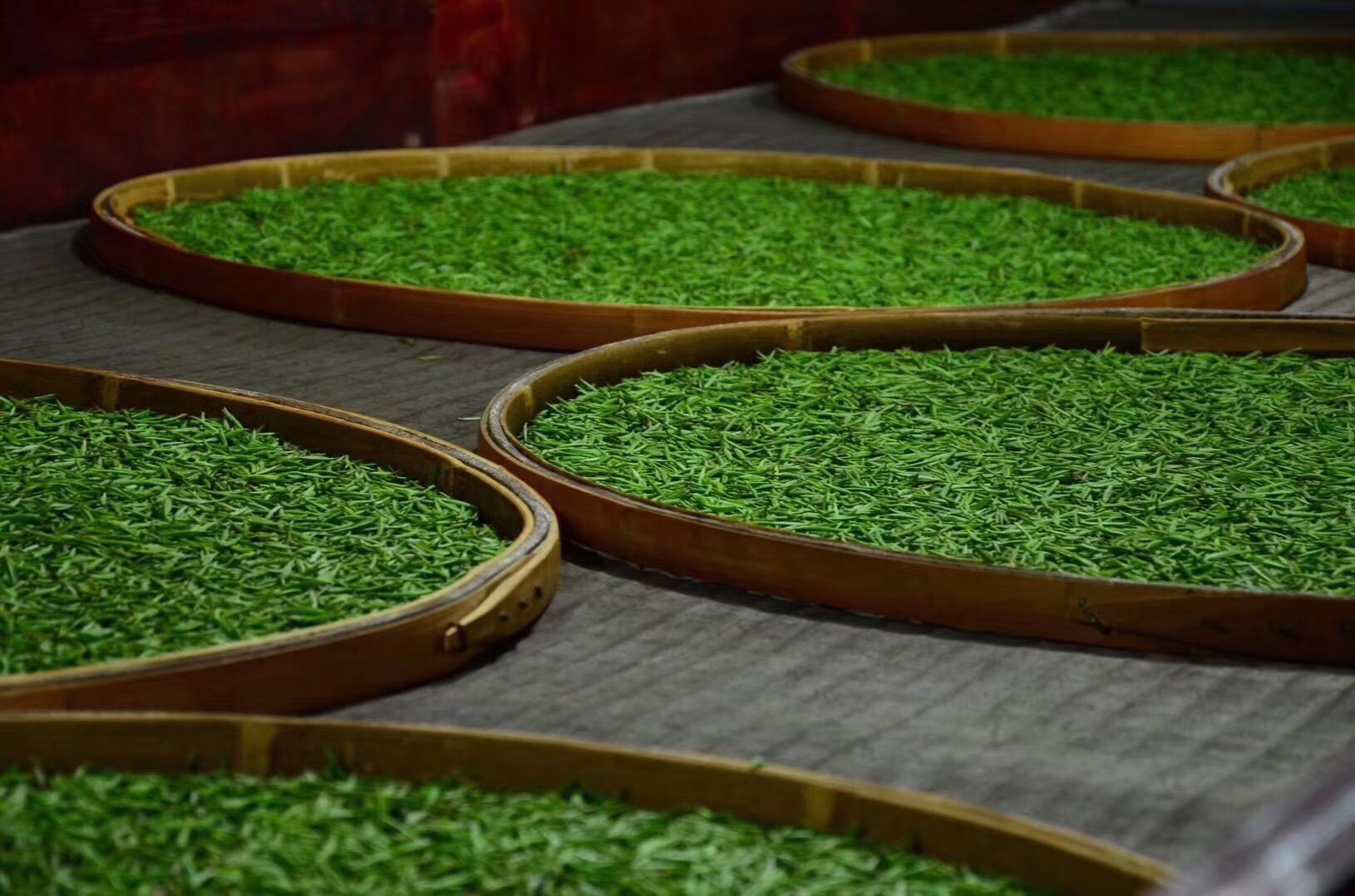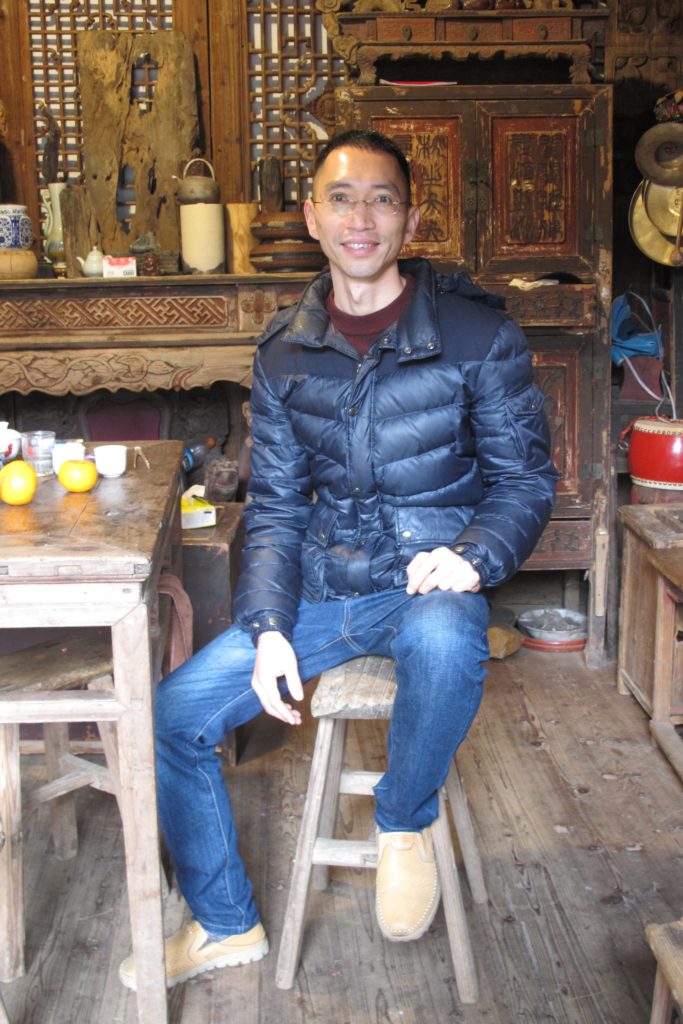
Daniel Hong’s whimsical online profile picture has him adorning a Charlie Chaplin hat with an oversized black cardboard moustache.
Chinese millennials don’t usually do whimsical, so I thought I might soon be meeting an over-the-top eccentric. Our online exchanges, on the other hand, had me worrying that I could soon be meeting one of those annoying types that delight in constantly correcting your inconsequential subjective opinions. I’m not a big fan of either type of personality, but I am a fan of Daniel Hong – a very big fan. Hong’s online persona was quickly displaced by his in-the-flesh impression – warm, curious, attentive, and possessing a tremendous talent for being present in the moment. I was quickly put at ease.
Hong has turned his passion for tea into his day job. Raised in the tea drunk Chinese province of Fujian, he takes his tea very seriously. He is on a spice-free diet to keep his palate clean so he can savor the subtleties that tea has to offer. He approaches his study of tea with a scientific rigor (which I had earlier mistaken for nit-pickiness) that has enabled him to possess an encyclopedia-quality of knowledge, including all the off-the-record political gossip that often goes together with Chinese tea. He also regularly tries to invent his own teas. The creation he is most proud of is a sweet oolong tea he calls Black Swan, which is a production method-homage to Taiwan’s most famous oolong tea – Oriental Beauty.
Hong invited me to drink tea with him by the aqua-colored Nine Bend River that winds through the majestic karst mountains of Mount Wuyi, an UNESCO world heritage site. As we watch bamboo rafts laden with tourists gently float by, Hong has one tea on his mind – Jin Jun Mei. It is a recent creation made of only wild tea buds of early spring from Mount Wuyi’s Tong Mu village. The buds are of the Cai Cha varietal. Just one gram of Jin Jun Mei requires 108 tea buds, which takes roughly half an hour to hand-pluck. It is a fully oxidized red tea, using a combination of traditional and innovative techniques that mimic the production process of Lapsang Souchong. In China, teas that produce a red liquor are named red teas. In the West, these teas are named for their black-colored leaves when dry.

In 2005, three tea hobbyists from Beijing – a writer and two journalists – took a trip together to Mount Wuyi. While they were exploring the tea gardens of the Tong Mu village – the birthplace of Lapsang Souchong – they came across a woman harvesting tea leaves. They were struck by how much effort was involved for little monetary reward. They asked to speak with the woman’s employer, who was Jiang Yuan Xu, and proposed a novel idea: create a boutique red tea made only from tea buds and market it at a premium price, thereby ultimately improving the wages of his tea pickers. That same day they all excitedly collected a bunch of buds and, with the help of two top tea makers, Liang Jun De and Gong Ya Ling, started experimenting at Jiang Yuan Xu’s factory. The final product was christened by the three Beijing tea hobbyists. Jin, meaning the color gold, was chosen for the yellow tips of the dry black leaf. Jun, meaning mountain range, was chosen to pay tribute to the beauty of Tong Mu. Mei, meaning eyebrow, was chosen because eyebrows culturally symbolize longevity of life.
The three Beijing tea hobbyists decided to memorialize the production process of Jin Jun Mei in a Song Dynasty-style poem. The three inventors of Jin Jun Mei went about getting the production process enshrined in a legislative instrument. There have been few other teas in China that have gone through such a formal recognition process, which has certainly added to the prestige of the tea. But of course, for any new product to shake up an industry, it needs a celebrity endorsement. That backing came from a certain famous Beijing artist who had a passion for red tea, but Hong is adamant that that artist shall remain nameless. There are certain matters in certain circles that are best left unsaid, Hong explains. Ultimately, the tea’s special celebrity association has resulted in it fetching a domestic market price of anywhere between $6,000 per kilo to more than $16,000 per kilo ($7,200 a pound). Before Jin Jun Mei, red teas in China sold for no more than $35 per kilo. Currently the average price for a decent-quality red tea is around $70 per kilo ($32 per pound).

Jiang Yuan Xu tried to trademark Jin Jun Mei. That led to a six-year battle that went all the way to the Supreme People’s Court in Beijing. Jiang Yuan Xu ultimately lost the appeal, with the judges finding that Jin Jun Mei was a generic name that belongs to the whole tea industry. As a result, there have been quite a few Jin Jun Mei teas flooding the market made from different varietals from different regions. These versions usually consist of large lightweight buds, compared to the small dense buds of the authentic Wuyi versions, and the coloring of the dry leaf is mainly yellow as opposed to a charcoal black leaf with a yellow tip. The dry leaves of authentic Wuyi Jin Jun Mei smell like wild roses and bush honey. Jin Jun Mei from elsewhere lacks the fragrance of wild rose and has a caramel scent instead of a bush honey scent.
Tasting Notes –

Hong views the tale of Jin Jun Mei as bitter-sweet. One of his ambitions is to give tasters from abroad that “Wow!” experience when they try some of the best teas China has to offer, and Jin Jun Mei certainly is up to the task. It has also meant that other fine quality red teas have been able to increase their reputation through connections with the better reputation of Jin Jun Mei, including Ning Hong from the Jiangxi province, Yi Hong from the Sichuan province, and Jiu Qu Hong Mei from the Zhejiang province. However, what troubles Hong is that the Jin Jun Mei knock-offs represent a larger problem of patchy professionalism in China’s tea industry. “Our industry is still developing, just like China itself,” he said. “Some people are drawn to the industry just to make a quick dollar and they don’t care about the tea itself. Our industry needs to attract the right type of people – not people who are drawn to the money, but people who see tea to connect with history, nature and the human psyche,” says Hong.
“That is why I started my own tea company. I want to understand the history and culture of my homeland, and for that reason I need to understand tea. I also want to be able to greet all strangers I meet with ‘Let us share a cup of tea, shall we?’ After that, we will be tea friends. The more tea friends I can make from around the world, the better,” he says.
Tea Market
Get More Value from Your Tea: BRU Maker One
+41794574278
Jacque's Organics
(647) 804-7263
I’m a tea seller and a tea advocate who buy rare teas usually for personal consumption because of being a small company. I’m really interested in purchasing some Jin Jun Mei, however I was told to be cautious because of unscrupulous tea sellers that does not have the real deal. If you know of any authentic sources I’m interested. My favorite tea is oolong all varieties: milky oolong, oriental beauty, ti kwan yin etc. thanks
You can rely on Daniel Hong at Hong Tea